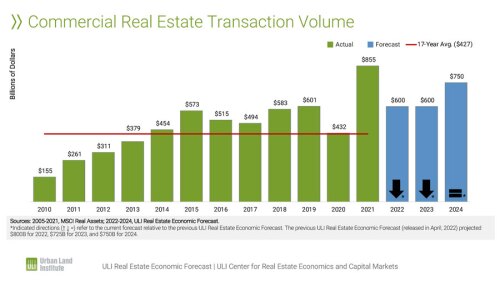Despite COVID-19 and the recession, the housing industry is seeing unexpected resilience in certain segments of the market, speakers said at the Housing Trends and Outlook session at the ULI Virtual Fall Meeting.
This has been a challenging year for the real estate industry, and no comparables exist from which to learn, moderator Timothy Naughton, chairman and chief executive officer of AvalonBay Communities Inc., noted in opening the session. Panelists weighed in on what the pandemic and economic downturn have meant for the housing industry and what their experiences have been so far.
Regarding single-family housing, Connie Emmitt-Stern, executive vice president of investments for Los Angeles-based real estate investment manager Resmark Companies, said, “We went into the year with a long-term vision of favorable demographics for housing.” The for-sale market was strong going into January and February thanks to a few factors—disciplined mortgage lending, rising demand from millennials, low unemployment, low interest rates, and a low supply of new homes and existing inventory, she said.
With the advent of COVID-19, in mid-March through the end of April, you “couldn’t give a home away” in many markets, she said. “But what surprised us is the fact that with almost all of our backlog, the homebuyers closed during this time and going forward. That was a sign of confidence from buyers,” she said.
“What I can share with you is that attainably priced suburban and commuter markets are definitely demonstrating higher demand from more traditional product, but we are still seeing some of our denser infill sites like townhomes and small-lot detached faring well.”
Regarding mixed-income housing, Dionne Nelson, president and chief executive officer of Charlotte, North Carolina–based Laurel Street Residential, provided a different perspective. “Our customer base is the low- to middle-income household, which has probably been the most severely impacted by the pandemic,” she said. “But when you really look at the performance of our portfolio, frankly we’re doing much better than I had anticipated.”
“Folks are paying rent when they can,” she added. “There’s a lot of subsidy . . . that I think has colored the reality of what’s happening in the market overall.
“The bottom line is that the portfolio is holding,” she said. “From a development perspective, the biggest impact we’ve seen is the slowdown in new construction starts. I think we will be fine, but we have to get to the other side.” She concluded: “I don’t think we will see real relief until 2021.”
Mary Ann King, co-chairman of apartment brokerage firm Moran & Company, noted how different this recession feels compared with previous ones. “The great financial crisis [of 2008] affected most of us equally, but this recession has been different and has resulted in a real geographic patchwork of winners and losers,” she said.
“People’s strategies for how to access opportunities in that market have also been different. Six years ago, all the money in the apartment business wanted to go to the ‘sexy six’ [usually Boston, Los Angeles, New York City, San Francisco, Seattle, and Washington, D.C.]. It all wanted to go to walkable, transit-oriented, and so we overbuilt those markets,” she said. “Now we are paying the price for that.
“Suburban areas that aren’t necessarily transit-oriented or walkable to retail are areas where we are not overbuilt and not subject to eviction protocols right now,” she added. “Employees don’t need to use public transportation or get elevators to their offices.”
The panel also discussed the current transaction and investment environment, and they provided outlooks for opportunities in 2021, the affordable housing crisis, PropTech, and more.


